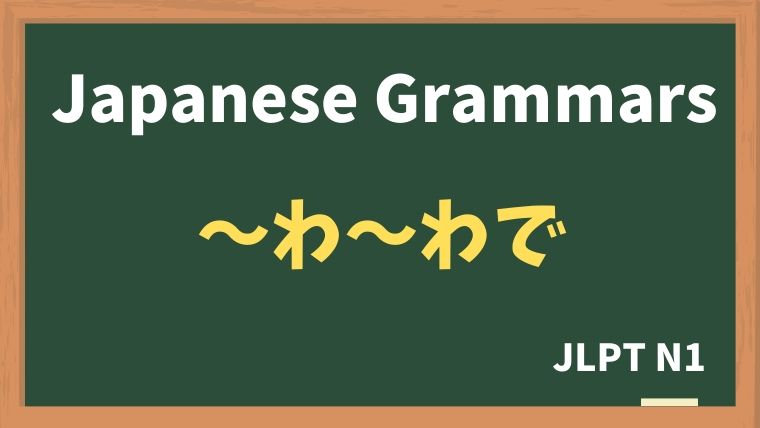
Explanation:〜わ〜わで
fa-check-circleMeaning
"〜し〜し、(困った/大変だった)"
良くないこと、悪いことが一度に起こって、大変だった/困ったと言いたいときに使います。
"~ and ~, (it was troublesome/it was tough)"
It is used to express that multiple bad things happened all at once, causing trouble or difficulty.
fa-check-circleForm
V(plain form)+わ+V(plain form)+わで
イA(plain form)+わ+イA(plain form)+わで
ナA(plain form)+わ+ナA(plain form)+わで
fa-check-circlePoints
- Simultaneous Events: "〜わ〜わで" indicates that multiple things are happening at the same time, contributing to a chaotic or busy situation.
- Hectic or Overwhelming: It often implies that the speaker feels overwhelmed, disorganized, or confused due to the number of things happening simultaneously.
- Informal Use: This expression is commonly used in everyday speech to express frustration, exhaustion, or surprise at how busy or chaotic things are.
fa-check-circleJLPT Level
N1
Sample sentenes
スマホは壊れるわ、財布は落とすわで、今日は散々な1日だった。
My phone broke, I lost my wallet, and today was a terrible day.
今週はレポートの締め切りがあるわ、テストがあるわで、忙しい1週間になりそうだ。
This week is going to be busy: I have a report deadline and tests.
このレストランは値段が高いわ、料理は美味しくないわで、もう二度と来ない。
This restaurant is awful: the prices are high and the food isn't good. I'm never coming back.
頭が痛いわ、気分が悪いわで、ご飯どころではない。
I have a headache and feel nauseous, so I can't even think about eating.
この国のドライバーは運転は荒いわ、スピードは出すわで、怖すぎる。
The drivers in this country are reckless and speed, which is too frightening.
この会社は給料が安いわ、仕事が多いわで、最悪だ。
This company is the worst: the salary is low and there's a lot of work.
成績は下がるわ、彼女にはふられるわで、最近ついてない。
My grades are dropping, and I got dumped by my girlfriend. I've been having bad luck lately.






